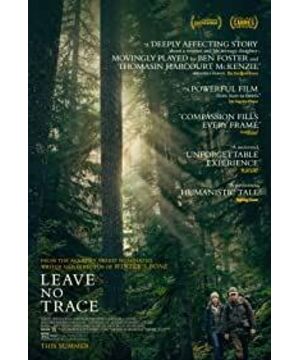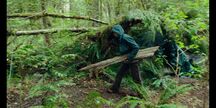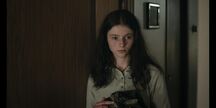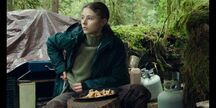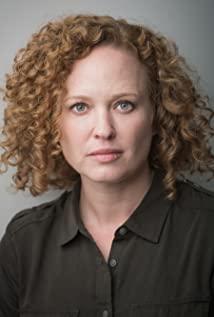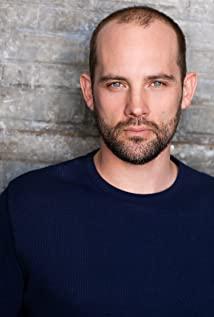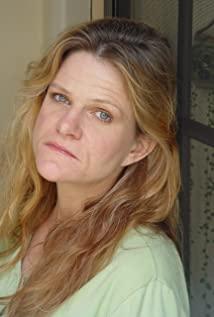The Life of "Leave No Trace" Leave No Trace
The film is based on Peter Rock's novel "My Abandonment".
Weir (Ben Foster) and his 13-year-old daughter Tom (Thomasin McKenzie) live in a large forest in Oregon National Park, except for a small tent, a Gas stove and almost nothing else. This is a large forest in the northeastern United States. There are big trees that are dripping and dripping water held by three or four people. The ground is also wet with ferns. Under the trees, people seem small. Sometimes, they travel long distances into the city to buy some daily necessities, and just like that, they come day by day.
Of course, this can't last forever, and due to the discovery of a runner, a couple of cops with dogs came and got them both, since it's illegal to live in a national park. So the two of them were arranged in a farmer's house, and they usually help the farmer plant trees. Go to church on weekends. In addition to attending school, her daughter also participated in a local extracurricular group, and she was very happy. But Ware didn't eat this, and within a few days, he packed up and fled with his daughter.
Of course run away. They got into the long-distance bus first, and then the big truck on the way. I got out of the car at the edge of a big forest. Into the woods in the rain. Tom was tired and cold, and his shoes got wet, and he couldn't walk at all. They spent the night under the big tree in the heavy rain, and finally found an empty room to rest the next day.
(spoiler)
Weil decided to explore the woods by himself first. Tom didn't see him back until the next day, and finally she found Dad nearby who was fainted under a tree. She ran to the road to find help. It was a few people who lived in the woods away from the crowd. They brought Vail back and put them in a spare car. Once again, Tom made friends with everyone. A few days later, Ware's old problems came back. He started packing. Poor Tom had to pack his luggage and silently followed behind him. But before she went far, she gathered up the courage to tell him that she had decided to leave him and go back.
Finally saw Weir turn from the dirt road into the big forest alone, and Tom hung a large sack full of food on a tree for passing homeless people to take away.
I don't know if it's sad or happy after watching the ending. Needless to say, the father and daughter were a tear-jerking scene. The grief of Will and Tom can be seen. But also happy for Tom to go his own way. She no longer has to follow Ware in the woods to endure and suffer needlessly. Ware, who suffers from PTSD from battles, avoided crowds by his own choice, but pulling in his underage daughter was overkill.
In my opinion, it is a miracle that two people can live for a week in a big forest. If you live for one day in the freezing winter, it can be said to be a miracle. The long-ago movie "Captain Fantastic (2016)" is also a story similar to a family living in the woods. I've made the same grumble (see my blog post "Captain Fantastic Shines "). Actually I was dead wrong. The first half of this story is a true story from 2004. Father and daughter have a covered crypt by a creek. They also have a small plot of land to grow things. My daughter taught herself with half an encyclopedia, and she has her own simple toys. Dad is a veteran of the Vietnam War, relying on the meager demobilization fee to support life. When they left the farm, they were nowhere to be found.
So the second half of the book is imagined by the author. It's a testament to how much more human beings can survive than I could have imagined.
Vail reflects the mentality of many homeless people who would rather suffer than hang out with other people. When their daughter persuaded him to try to adjust to the new life when they lived in the farmer's house, his answer was "We wear their clothes, eat their food, and work for them, and we have adapted." An attitude that is opposed to society as a whole. Of course, I would rather go into the big forest alone with a big backpack. However, he still understands his daughter, and despite the breakup, despite the pain, he has no complaints. The company of his daughter over the past few years is his greatest support. Without her, life would have been much more difficult.
Back in Vail's life, the war made him sick. There are many homeless people in the United States who have embarked on this road because of post-traumatic stress disorder. War has not only killed and wounded countless soldiers and civilians, but also destroyed society. Even after the war, there were many sequelae. In other words, this film criticizes the war from the side. It can be seen that in the small settlement in the forest, there are many veterans who would rather live in the forest and stay away from society.
Here's my latest film about Oregon, and anyway, it's a sparsely populated place where a lot of stories of people struggling with nature can be written (see my blog post " Friend's Racehorse Pete" ”).
"Leave no trace" turned out to be a term used by the Boy Scouts to leave no trace after camping.
Writer and director Debra Granik is best known for "Winter's Bone (2010)," which was nominated for four Oscars and one Golden Globe.
Ben Foster is an excellent character actor (see my blog " Going through fire and water ").
Thomasin McKenzie is a New Zealand actor.
View more about Leave No Trace reviews


